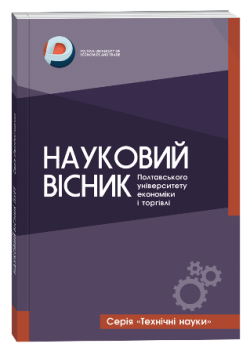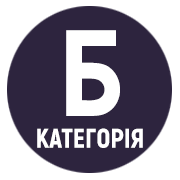EXPERTISE OF DOCUMENTARY SOURCES OF INFORMATION AS A METHOD OF SCIENTIFIC RESEARCH
Abstract
Throughout the history of science, attempts have been made repeatedly to explore the diversity of documentary sources by identifying common and distinctive features between them, identifying typical features,forming classifications and creating generalized idealized models of documents. One of the key factors determining the quality of scientific research is the level of information support, which serves as the main source of scientific information for the researcher.The article examines research methods and the main stages of the examination of documentary sourcesof information.It has been established that the examination of documentary sources of information is an integral part of scientific research, ensuring objectivity, reliability and depth of source analysis. It allows not only to establish the authenticityand origin of the document, but also to identify hidden semantic levels, clarify the context of creation and assessthe informative value of the source.In conditions of increasing volumes of information and the spread of falsified materials, the role of examination is significantly increasing, since it serves as a reliable tool for selecting reliable and relevant sources for scientific analysis.Expertise of documentary sources plays a key role in ensuring scientific reliability during research, analytical assessment and practical work with information resources. It is aimed at a comprehensive verification of documents,which includes determining their authenticity, reliability, origin, as well as analysis of the content and contextof creation. In the modern information environment, which is characterized not only by the high speed of data circulation, but also by a significant variety of sources, expertise becomes especially important for separating reliable information from potentially falsified or manipulative.Without proper expert assessment, there is a risk of including unverified, biased or falsified materials in scientific circulation, which can lead to false conclusions and distortion of scientific knowledge.
References
2. Deryuha, A. (2022). Suchasni tendentsii rozvytku dokumentoznavstva ta sotsialnykh komunikatsii [Current trends in the development of document science and social communications]. In Informatsiia ta dokument u suchasnomu naukovomu dyskursi: materialy VII Vseukrainskoi dystantsiinoi naukovo-praktychnoi konferentsii (Ivano-Frankivsk, 20 travnia 2022 r.) – Information and Document in Modern Scientific Discourse: Proceedings of the 7th All-Ukrainian Distance Scientific and Practical Conference (Ivano-Frankivsk, May 20, 2022) (p. 175). Ivano-Frankivsk : IFNTUNG. [in Ukrainian].
3. Moroz, I. V. (2019). Osoblyvosti roboty zi statystychnymy dzherelamy na urokakh istorii v lytsei [Peculiarities of working with statistical sources in history lessons at lyceum]. Anotovani rezultaty naukovo-doslidnoi roboty Instytutu pedahohiky za 2019 rik – Annotated Results of the Research Work of the Institute of Pedagogy for 2019. [in Ukrainian].
4. Skachkova, T. (2012). Dokument yak dzherelo informatsii pro osobu [Document as a source of information about a person]. Pidpryiemnytstvo, hospodarstvo i pravo – Entrepreneurship, Economy and Law, (2), 145–147. [in Ukrainian].
5. Suslikov, L. M., & Studeniak, I. P. (2019). Prezentatsiia naukovykh rezultatov [Presentation of scientific results]. Uzhhorod : Vydavnytstvo UzhNU “Hoverla”. 300 p. [in Ukrainian].
6. Suslikov, L. M., & Studeniak, I. P. (2019). Upravlinnia naukovymy proektamy [Scientific project management]. Uzhhorod : Vydavnytstvo UzhNU “Hoverla”. 432 p. [in Ukrainian].
7. Tsymbaliuk, V. S. (2010). Informatsiine pravo: osnovy teorii i praktyky: Monohrafiia [Information law: Basics of theory and practice: Monograph]. Kyiv : Osvita Ukrainy. 389 p. [in Ukrainian].
8. Chupryna, O. (2012). Pravo na informatsiiu: administratyvno-pravovyi aspekt [Right to information: administrative and legal aspect]. Pidpryiemnytstvo, hospodarstvo i pravo – Entrepreneurship, Economy and Law, (1), 127–130. [in Ukrainian].
9. Politova, O. (2012). Dokumentalno-informatsiinyi potik z dokumentoznavchoi profesiolohii: struktura, dynamika ta suchasni tendentsii [Documentary and information flow in the profession of document science: structure, dynamics and modern trends]. Visnyk Knyzhkovoi palaty – Bulletin of the Book Chamber, (9), 38–41. [in Ukrainian].


